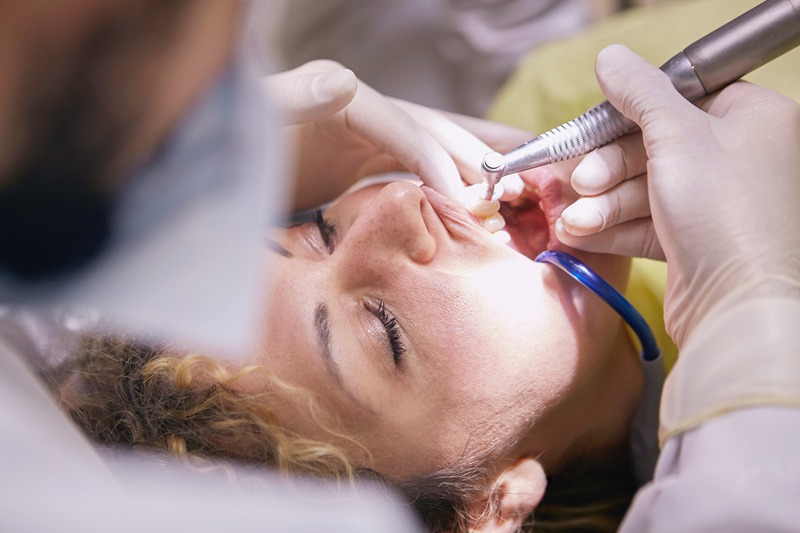If you’re considering a permanent solution to replace missing or damaged teeth, dental implants may be on your radar. With advances in dental technology, they’ve become a popular and effective choice for many.
However, knowing when it’s the right time to opt for dental implants can be confusing. Here’s a comprehensive look to help you determine the best time to consider this life-changing dental procedure.
Understanding Dental Implants
Dental implants are essentially artificial tooth roots made of titanium, which are surgically inserted into the jawbone. Over time, they fuse with the bone, providing a sturdy foundation for replacement teeth.
They are designed to look and feel like your natural teeth and can restore both the function and aesthetics of your smile.
Assessing Your Need for Dental Implants
The decision to get dental implants is not one to be taken lightly. It’s a commitment to a surgical procedure and a financial investment. Here are several circumstances under which dental implants might be the right choice for you:
-
Missing Teeth: If you have one or more missing teeth, implants can offer a permanent solution compared to bridges or dentures.
-
Severely Damaged Teeth: Teeth that are too damaged to save with crowns or fillings might require implants.
-
Loose-Fitting Dentures: For those who are tired of dealing with dentures that slip or cause discomfort, implants can be a game-changer.
When Tooth Loss Affects Daily Life
Missing teeth can lead to difficulties in chewing, changes in speech, and loss of self-confidence. If these issues start to affect your daily life, it’s time to consider implants as a solution that can offer a long-term fix.
Age and Dental Implants
There is a common misconception that dental implants are only for older adults, but age is not a limiting factor – overall health is more important. Whether you’re in your twenties or well into retirement, if you’re in good health, you could be a candidate for implants.
Emergency Dental Clinic for Dental Implants
Sometimes, a dental emergency could lead to the immediate need for an implant. In cases where a tooth is knocked out or severely damaged beyond repair, seeking emergency dental services promptly is crucial. For those in the region, having access to New Jersey’s preferred emergency dental clinic means that immediate care is available, potentially leading to a speedier implant procedure where necessary.
The Role of Family Dentistry in Dental Implant Decisions
Discussing your options with a family dentistry professional can provide a roadmap for your dental care. These practitioners work with patients of all ages and are skilled at managing a variety of dental concerns. When considering dental implants, the advice and expertise of family dentistry can be invaluable in making an informed decision.
Family dentists provide personalized care that takes your entire dental history into account. If you’re interested in implants, bringing this up during a routine check-up can be a great starting point. They can assess your oral health, discuss your options, and determine if preliminary treatments are needed before considering implants.
The Comfort and Familiarity Factor
For many, discussing sensitive health matters can be easier when done with a familiar face. Many family dentistry clinics, such as Platinum Dental in Ventnor, offer a comfortable environment where patients feel more at ease discussing their dental implant needs.
Choosing the Right Time for Implants
The timing of dental implants varies from person to person. Critical factors include gum health, jawbone density, and overall oral health. Here are milestones that might indicate it’s time to take the plunge:
-
After Healing From Tooth Extraction: Once the area has healed, an implant can be placed.
-
Following Periodontal Treatment: If gum disease was a concern, once it’s under control, implants might be viable.
-
When Bone Loss Is a Concern: Jawbone density is important; if you’re at risk for further bone loss, your dentist may recommend getting implants sooner rather than later.
Preparation Is Key
Before you undergo the dental implant procedure, there’s a fair bit of preparation required. This includes a comprehensive dental exam, a treatment plan tailored to your needs, and, potentially, additional procedures such as bone grafting if the jawbone isn’t thick enough to support an implant.
Maintaining Oral Health Pre-Implant
Good oral hygiene is crucial before considering implants. The area must be free of infection, which means consistent brushing, flossing, and dental check-ups are non-negotiables. If you’re already doing this, you’re on the right path to being a candidate for implants.
Getting a Second Opinion
Even after you’ve been told you’re a good candidate for implants, it’s always wise to seek a second opinion. This can offer assurance that you’re making the right decision and might provide additional information or treatment perspectives.
Understanding the Role of an Endodontist
In some cases, saving a natural tooth might be preferred over an implant. An endodontist specializing in the health of tooth roots and pulp offers specialist root canal care to attempt to preserve your natural tooth. A consultation with an endodontist could be part of your journey, helping you weigh the benefits of root canal therapy versus an implant.
Conclusion
Dental implants are not an instant fix but a long-term investment in your oral health. Considering their lifespan, functionality, and the confidence they can restore, taking the time to thoroughly evaluate whether it’s the right time for implants is crucial. Utilize the expertise available to you, maintain your oral health, and when the time is right, you can look forward to the myriad benefits that dental implants have to offer.

